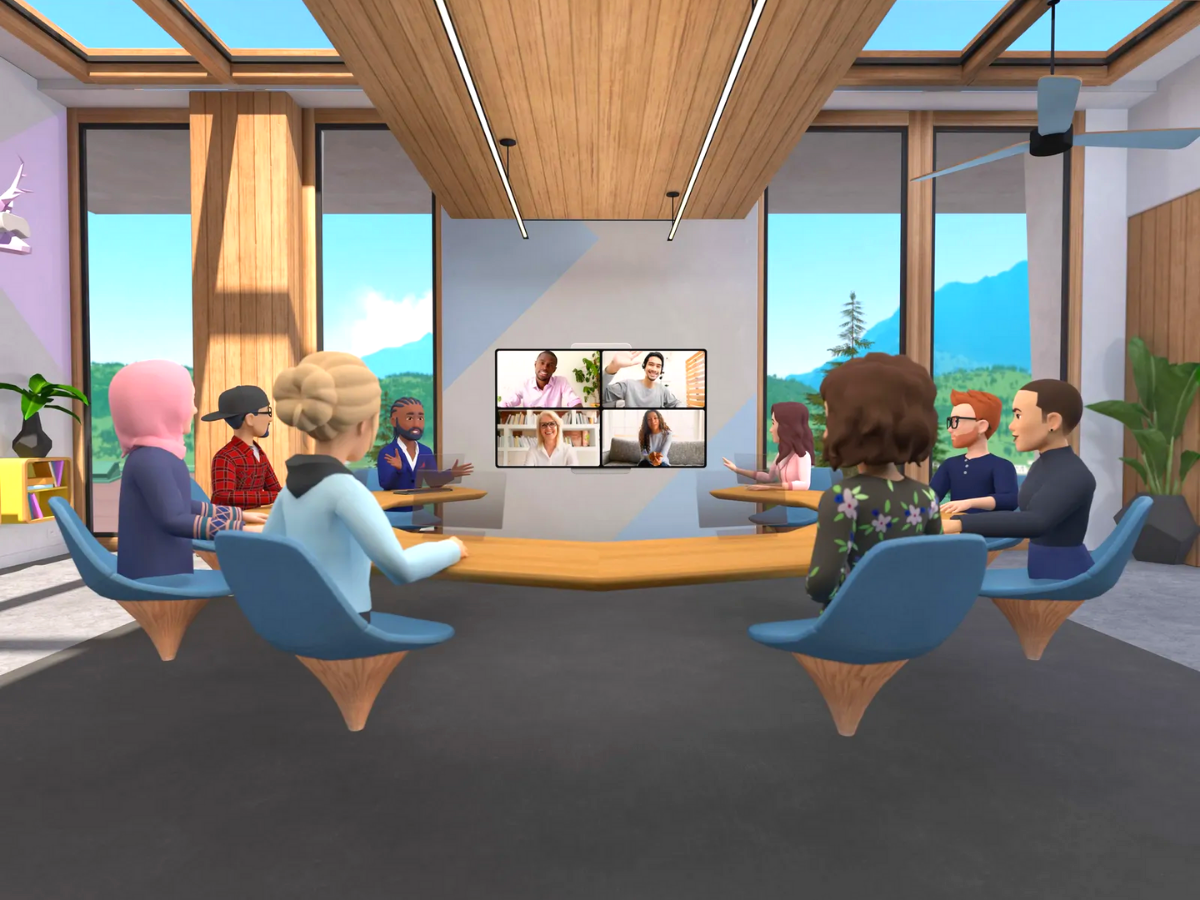As businesses all around the world adjust to the ‘new normal’ in light of the ongoing coronavirus pandemic, Facebook is partnering with the virtual reality application Horizon to bring together a new concept of virtual workrooms. This new twist on work from home enables professionals from different parts of the world to come into one virtual space. Whilst almost every working professional has gone through the struggle of endless Zoom and Teams meetings, Facebook is looking at building a ‘metaverse’ where we can collaborate with people all over the world as our ‘avatar’ selves. Their hope is that this will be a more engaging alternative that feels a little more like the real deal.
Facebook’s metaverse
The metaverse is, according to Zuckerberg, an embodied internet where users no longer simply observe the content, they become part of it. While the social media giant has already broken the boundaries with many other digital breakthroughs, this new concept modifies the digital future of our work from home lives.
Facebook’s own Oculus will be the hardware company that allows users to interact with each other in this new metaverse, and this is just the beginning of Zuckerberg’s 5-year vision for the future of the company.
What does this collaboration bring to the table?
Facebook claims that Workrooms is their ‘flagship collaboration experience that lets people come together to work in the same virtual room, regardless of physical distance’. It will be able to allow up to 50 people to enter the meeting room, with 16 of those being able to access all of the full virtual reality features. You will also be able to take your compatible keyboard and other workspace essentials into the meeting thanks to keyboard tracking, combining your real-world work-life with that of your virtual one.
The room will also provide for a big virtual whiteboard for ease of presentation, with hand-tracking features allowing for note-taking and a more engaging presentation experience. Whilst Facebook has already been using this technology for its own meetings, opening up the possibility of VR boardrooms for people all around the world could, for many, completely change what it means to be back at the office in person. The app may be free but you will need an Oculus Quest 2 VR headset to access these features and they, unfortunately, cost around £300. However, those who do not have a headset can also join via a video call.
Privacy concerns
Although the concept sounds pretty fascinating, and could potentially eradicate the need for in-person meetings, Facebook has previously been caught up in privacy concerns. The importance of privacy in business is even more substantial than elsewhere as companies disclose strategy plans, budgets and new ideas amongst themselves in meeting rooms. CEO Mark Zuckerberg has made it a point to inform users that neither the platform itself nor any other third-party apps will be able to access any information from these virtual workspaces to inform their own advertisements.
The company also says that all VR users must comply with Facebook’s community standards, ensuring that these workrooms are a safe and regulated environment for business to occur. There is also an option for people to use the Oculus reporting tool for anyone who seems to be breaking the code of conduct or needs to be reported for any kind of misuse. Facebook has also gone so far as to ensure that the Workrooms account is not linked to your Oculus or Facebook account, so as to keep the social and professional aspects of digital accounts separate from one another.
Where will Facebook go from here?
Horizon Workrooms will be available for download on Oculus Quest 2, in whichever countries this application is supported. Whilst Zuckerberg acknowledges that, in present time, the concept of virtual reality is largely known to and associated with the gaming world, his plans to expand this metaverse mean that he wants to make it a ‘persistent, synchronous environment where we can be together.’
Over the coming few years Facebook is going to heavily invest in the research and development of tools that will enhance our virtual experiences. Zuckerberg’s futuristic vision of Facebook’s transformation from a social media company to a metaverse company is certainly one that is worth watching.
About the Author: Nandini Mehta
Nandini Mehta is a contributing Features Writer focusing on the development of technology and business practices around the world. Nandini has an in-depth knowledge of politics and international relations, and so writes pieces that utilise her interest for current affairs.
Recommended for you

Antidepressant Prescribing at Six-Year High
More people are taking antidepressants than ever. Is this a dark sign of the times or an indication that mental health stigma is changing?

Can AI be Used to Determine Cancer Recurrence?
When cancer patients go into remission, they often worry about it coming back. AI can now help identify those at risk of cancer recurrence.

Pegasus – Still a Threat to the UK?
The notorious Pegasus spyware has been misused to exploit vulnerabilities in devices, even those kept within the walls of Number 10.
Trending

Drug Decriminalisation: Could the UK Follow Portugal?
Portugal’s drug decriminalisation has reduced drug deaths and made people feel safe seeking support. Would the UK ever follow suit?

Calling All Unvaccinated UK Adults
With Covid cases rising, the NHS is urging the 3 million UK adults who remain unvaccinated to come forward.




